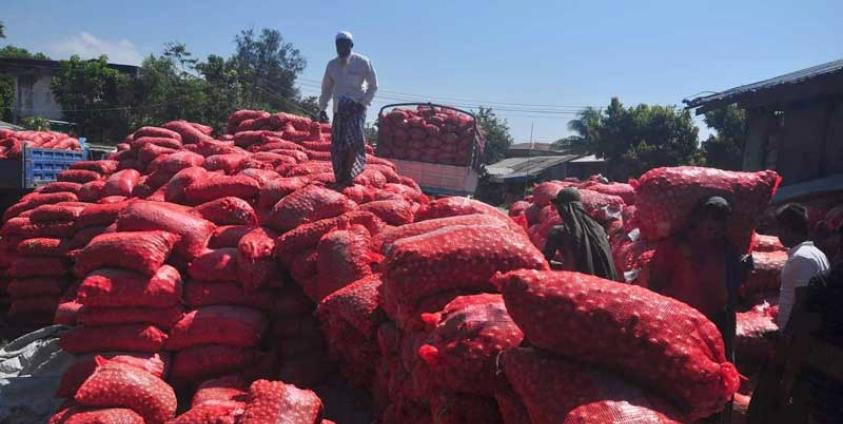A QR code system has been introduced to the border trade with Bangladesh through Arakan State, aiming to facilitate legal trade, systematically monitor trucks carrying goods under export licences, and facilitate inspection of goods, according to Myanmar’s Ministry of Commerce.
Under the new policy, traders are required to apply for a transport permit online, and the Commerce Ministry issues QR codes for cargo trucks. The system took effect across the country as of February 18.
The policy requires traders to apply for a QR code online 24 hours before the shipment.
“Traders have difficulties as the system was introduced all of a sudden. Last time, traders suffered losses as they waited for the QR code for cargo that had already arrived in Sittwe,” said the chairman of the Rakhine State Chamber of Commerce and Industry, U Tin Aung Oo.
Traders are having difficulties as they are not familiar with the online system, and there are also delays in the QR code system, echoed merchant U Nyi Nyi from Sittwe.
“We don’t know immediately if our QR code application has a mistake or needs more information. We have to wait for the whole day in front of the computer [waiting for a response from the Commerce Ministry]. Previously, we could apply for it at the office just before the shipment, and there was no hassle,” said U Nyi Nyi.
The QR code system will be used not just for border trade, but for transportation of all exports and imports, according to the junta’s Information Ministry.
A merchant from Maungdaw said he suffered losses because of delays in the QR code system caused by slow internet connections.
“We have to give time for the QR code application. Internet connectivity is poor in our area. The QR code application process takes longer than normal. Last time, fish [bound for export] went bad, and I didn’t get good prices,” he said.
Myanmar exports fish, shrimp, crab, onion, chilli, rice and other goods to Bangladesh through border gates in Arakan State, and mainly imports building materials.
The border trade with Bangladesh declined by more than half last year due to instability in Arakan State and beyond. The trade value through Maungdaw and Sittwe border trade camps declined from about US$284 million in 2021 to less than $140 million last year, according to the Commerce Ministry.








